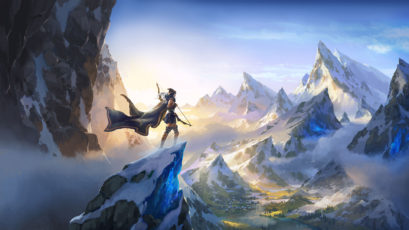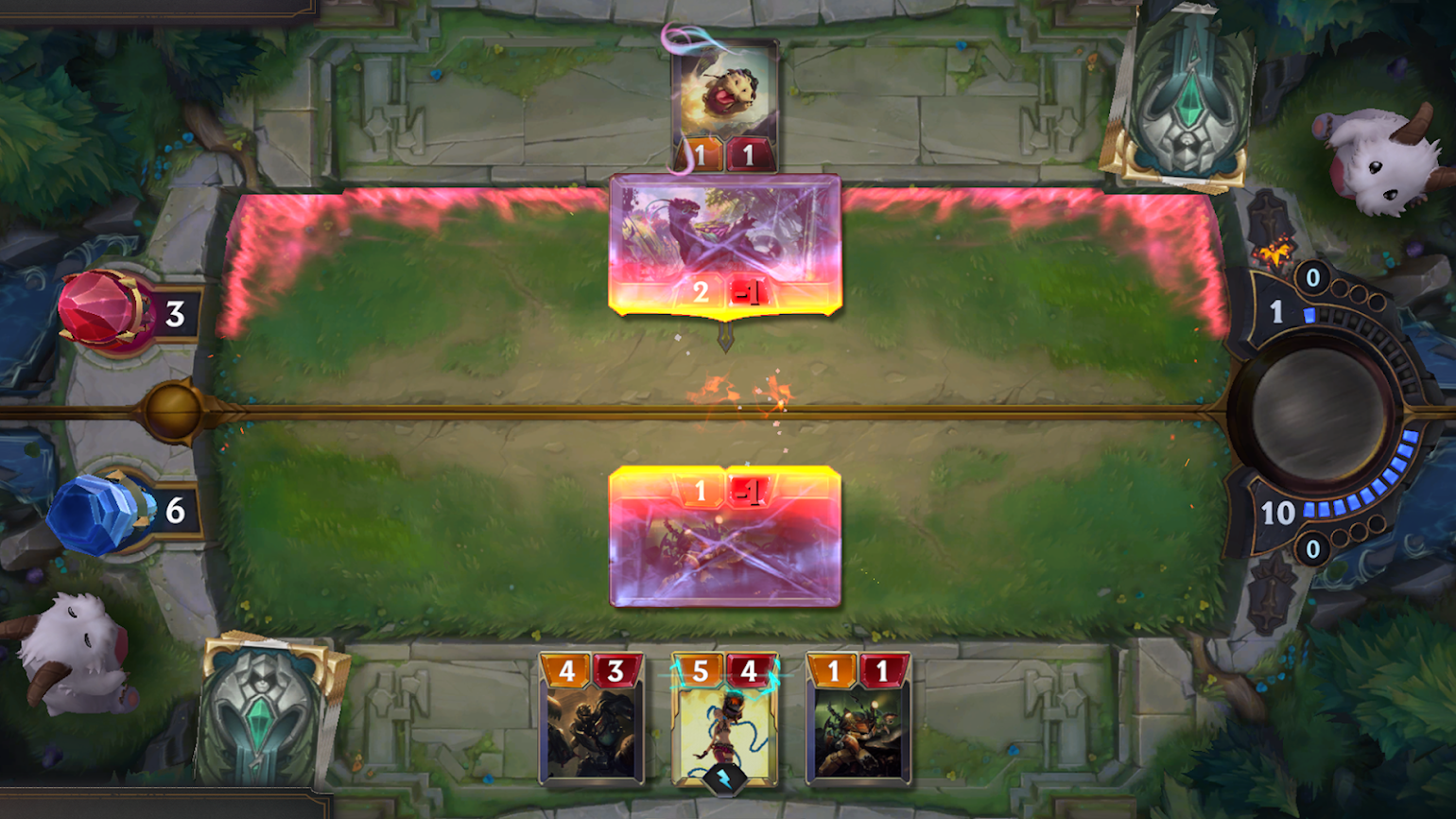Thoughts on Legends of Runeterra

Think what you want about Riot games as a company, they are quite controversial these times, but they have some solid developers in their midst. Growing up I was a Dota-boy and I transitioned to LoL as early as Beta version. I played it a lot with my brother and some of my friends. Made a lot of new friends in the game. Played it with my students when I became a teacher. Needless to say, the game and especially the characters holds a special place in my heart.
The last six months I’ve started playing Legends of Runeterra a lot; Riot’s card game set in the same world. I played it quite a bit at release as well but I fell off because of other interesting games that popped up. Now I’m really hooked, much thanks to me buying a new phone where you can actually play games. Since digital card games these days are so well adapted to mobile screens it works just as well to play on the phone as it does on the PC.

Rather than talk about how the game works I thought I’d focus in on the stuff that I really like about it.
First: The Champions
Each deck can have up to six champions. You can have fewer if you want to but generally the champions are pretty powerful units so you want them in the deck. You can have a maximum of three copies of each champion in the deck(as with any other card). Champions have a level up condition, when leveled up the champion will switch to a more powerful form which will often speed up the game considerably if not dealt with quickly. The champion often have an effect that helps them on their way toward their level up. Conditions are things like seeing units die, dealing damage, targeting enemies or seeing specific keywords on allies. Champions are often the build around cards for each set. Each champion comes with a set of cards that are designed to use with them, but many champions have overlapping effects where you can double down on a specific strategy or creating interesting combinations.
Second: The Attack Token
To win in LoR you have to lower your opponent’s crystal’s health to zero, the most straightforward way to do this is to attack. This is by no means a unique rulest for card games, what is unique is the way the attack order works. Who gets to attack is determined by an attack token. The attack token starts with a player chosen at random and is then passed back and forth between the players as they pass turns. Since you can attack at anytime during a turn as long as you have the token, this creates a very interesting choice: Do you “open attack” or do you “develop”? The one who has the attack token always takes the first action, so an open attack is simply to attack as the first thing you do on a turn. This often means that you aren’t attacking with at much as you could have, if you have any units in your hand, but it also means that the opponent can’t develop any more blockers than what they have. The other option is to spend your mana to develop more attackers and then attack. Which of these options is the correct one is often not trivial to figure out as it depends on match up, what cards you think your opponent have and what the current health total is.
Third: Spell mana
Often the more simple feature contributes the most to elevating certain games from being mediocre to being great. Spell mana is such a feature. Starting from zero, at the start of each turn you gain one extra maximum mana and then refill. Any excess mana that you don’t spend are lost to you, except if you have available spell mana slots. There are three spell mana slots and you can use them to bank mana for future turns, but you can only use that mana to cast spells. There are three types of cards in LoR: units, spells and landmarks (these were added in one of the expansions). Units and Landmarks stick on the board and have lasting power where spells often have an immediate effect, often a more supportive one. This makes it so that there is a merit to saving some of your mana but only makes it available for certain plays.
Fourth: Passing the turn
In LoR you take turns doing one action each during a round. Passing the turn might seem like a mundane thing at first, but it’s actually quite a brilliant chicken race mechanic. You often don’t want to be the first one to commit to something big, as if you don’t have any available mana left your opponent knows that you can’t deal with anything they play. This makes for a fun dare game were if you have the most developed board state you can dare your opponent to act first or spend their mana.
Finishing thoughts
Apart from those four points, LoR is just a well made game with tons of good voice acting, interactions between the characters on the cards, cool mechanics and right now a really fun meta. They also have expeditions (a form of drafting) and a single-player mode. They also have an extremely generous economy. I haven’t paid anything and I can still make any deck I want. Only reason I would want to spend money on it would be to support the developer, which is something I really should do I just haven’t decided what I would want to buy. There are some cosmetic items that are pretty cool but nothing has fully caught my eye to warrant a purchase.
Well, that’s a few thoughts. Might make another post later about it.